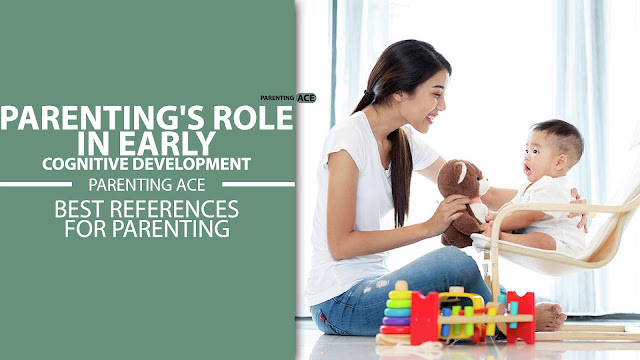Nurturing Minds: The Crucial Role of Parenting in Early Childhood Cognitive Development
Embark on a journey through the labyrinth of early childhood development, where the subtle art of parenting intertwines with the burgeoning cognitive prowess of young minds. In this blog post, we unravel the profound impact of parental guidance on shaping children's cognitive growth during these crucial formative years. From fostering language skills to igniting curiosity and problem-solving abilities, discover how effective parenting strategies serve as the cornerstone for unlocking the full potential of our children's intellects. Join us as we delve into the intricate dynamics of nurturing young minds and empowering parents to become architects of cognitive brilliance.
 |
| Parenting's Role in Early Cognitive Development |
Early childhood marks a critical period of rapid cognitive development, laying the foundation for a child's future academic success and lifelong learning. In this article, we delve into the intricate interplay between parenting and cognitive growth during these formative years, exploring the essential role parents play in fostering their children's intellectual development.
Understanding Early Childhood Development
Early childhood, typically defined as the period from birth to around age eight, is characterized by remarkable cognitive growth and neural plasticity. During this time, children's brains undergo significant development, forming neural connections that shape their cognitive abilities, including attention, memory, language, and problem-solving skills. These foundational skills serve as building blocks for future learning and academic achievement.
The Role of Parenting in Cognitive Development
Parenting practices profoundly influence a child's cognitive development, serving as a primary source of stimulation, support, and guidance during early childhood. Parents who engage in responsive and enriching interactions with their children create an environment conducive to cognitive growth. For instance, activities such as reading aloud, engaging in meaningful conversations, and providing opportunities for exploration and discovery stimulate neural pathways, fostering language development, critical thinking, and socio-emotional skills.
Parenting Styles and Cognitive Outcomes
Research suggests that parenting styles significantly impact children's cognitive outcomes. Authoritative parenting, characterized by warmth, responsiveness, and clear expectations, has been associated with positive cognitive outcomes, including higher academic achievement and problem-solving abilities. In contrast, authoritarian or permissive parenting styles may hinder cognitive development by limiting opportunities for autonomy, exploration, and intellectual stimulation.
Effective Parenting Strategies for Cognitive Growth
Several parenting strategies can promote cognitive development during early childhood:
- Provide a Stimulating Environment: Surround children with age-appropriate toys, books, and educational materials to encourage exploration and learning.
- Promote Language Development: Engage in conversations, storytelling, and reading activities to enhance language skills and vocabulary acquisition.
- Encourage Curiosity and Problem-Solving: Support children's natural curiosity by encouraging exploration, experimentation, and problem-solving activities.
- Foster Positive Relationships: Build strong, supportive relationships with children based on trust, empathy, and mutual respect, creating a secure foundation for cognitive growth.
- Model Lifelong Learning: Demonstrate a positive attitude towards learning and curiosity, serving as a role model for children to emulate.
In conclusion, parenting plays a pivotal role in shaping children's cognitive development during the critical early years of life. By providing a nurturing and stimulating environment, engaging in responsive interactions, and promoting positive parenting practices, parents can lay a solid foundation for their children's intellectual growth and future success. Recognizing the importance of parenting in fostering cognitive development underscores the significance of investing in early childhood education and support programs to empower parents and optimize outcomes for children worldwide.




